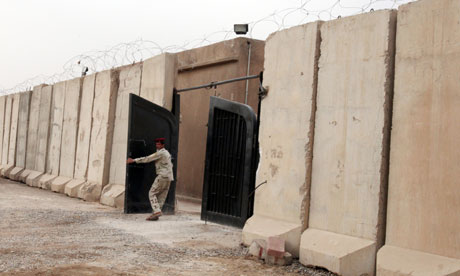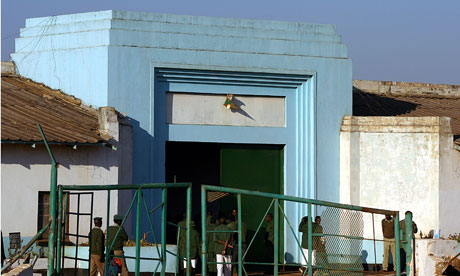PRISONER THREATENS TO SUE OVER VOTE BAN
PRISONS Vote
Apr 21, 2010 3:30:38 PM
Press Association
Page 1
A prisoner is threatening to sue the Government for blocking him from
voting in the General Election, a law firm said today.
Leon Punchard, 19, who is currently serving an 18-month jail term at HMP
Norwich, filed an application to the European Court of Human Rights
(ECtHR).
Solicitors Leigh Day & Co said Punchard was seeking a "declaration and
compensation from the UK government for its failure to take the
necessary steps to allow him to vote".
Five years ago the European Court of Human Rights ruled it was illegal
for ministers to deny voting rights to all prisoners.
Since then the Government has held two public consultations on the issue
but has not changed the law.
A spokesman for the law firm said a letter was sent to Justice Secretary
Jack Straw earlier this year "requesting immediate steps" be taken to
allow Punchard to vote.
"No such steps have been taken and, with the date for registering to
vote having now come and gone, Mr Punchard is barred from voting," the
spokesman said.
"With no other remedies available to him under the domestic legal
system, Mr Punchard has no alternative but return to the ECtHR seeking a
declaration and compensation from the UK Government for their breach of
one of his most fundamental convention rights."
Punchard, who was convicted in December 2009, is due to be released in
July - two months after the election.
The law firm's spokesman said Punchard was jailed for an offence
committed in Norfolk in October last year.
But he would not confirm the nature of the crime.
mfl
Page 2
A spokesman for Norwich Crown Court said Punchard, of Motum Road,
Norwich, was handed an 18-month term in a young offenders' institution
on December 1 last year.
He said Punchard was convicted of burglary and had a further 68
offences, including theft, taken into account by the judge sentencing at
the court.
A Norfolk Police spokeswoman said Punchard was arrested over a dwelling
burglary in Norwich which happened on October 3 last year.
She said a television was stolen from the property.
mfl
Page 3
Last year, Justice Minister Michael Wills confirmed it was "unavoidable"
that some inmates would be given voting rights.
A policy paper published in April last year suggested prisoners serving
sentences of up to four years could be allowed to vote.
That would mean giving voting rights to around a third of the 84,000
currently in custody.
In February, the Association of Prisoners said it was pursuing a
compensation claim against the Government for blocking prisoners from
voting.
It said it wanted at least GBP1,000 for every offender in England.
Ben Gunn, general secretary of the Association of Prisoners, said the
Government had defied the court for too long.
Speaking in February, he said the Government had acted in "bad faith in
defiance of implementing the court's judgment".
mfl
Page 4
A Ministry of Justice spokesman said: "A two stage consultation process
on prisoner voting rights took place. The second stage consultation has
closed.
"The Human Rights Act does not limit Parliament's freedom to pass
legislation. If primary legislation is incompatible with the ECHR, the
domestic courts may make a declaration of incompatibility but the
provisions remain in force.
"It is for Parliament to decide how to respond to that declaration,
taking into account the UK's international obligations."
end
Page 5
(reopens)
Juliet Lyon, director of the Prison Reform Trust, said: "Sentenced
prisoners' voting should be a right, and a civic duty, as it is in
almost all other Council of Europe countries.
"Picking and choosing which laws to obey and which to disregard is a
terrible message for any government to give to its citizens.
"When 70,000 people are unlawfully barred from voting you can expect
challenges."
end
 Click photo to enlarge
Click photo to enlarge




















